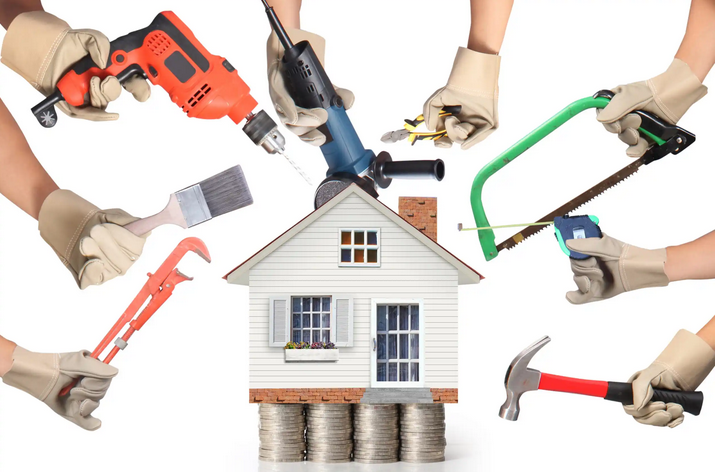home repair is a crucial facet of homeownership, making certain your house remains to be safe, secure, and useful. Here’s a comprehensive self-help guide to learning the fundamentals of home repair.
1. Standard Servicing: Standard maintenance is vital in preventing minimal issues from escalating into significant troubles. Activities including cleaning rain gutters, inspecting roofing, and providing Heating and air conditioning systems ought to be carried out regularly.
2. Do-it-yourself or. Specialist Help: Even though some maintenance might be tackled with Build-it-yourself strategies, other individuals require specialist experience. Know your boundaries and always focus on protection. Structural repairs, electric powered job, and sophisticated plumbing related concerns must be left to competent pros.
3. Tools and Equipment: Having the right tools and equipment is vital for residence fixes. Simple instruments like screwdrivers, wrenches, hammers, and strength drills are needed for most jobs. Spend money on high quality tools to ensure efficiency and protection.
4. Security Measures: Protection must always come very first when carrying out house repairs. Use protecting items including gloves, goggles, and face masks when coping with unsafe components or functioning potential equipment. Comply with maker recommendations and safety suggestions diligently.
5. Budgeting: House fixes can be expensive, so it’s essential to price range accordingly. Put in priority maintenance according to urgency and allot funds properly. Take into account placing aside a part of your respective income for crisis maintenance to prevent fiscal stress.
6. Study and Schooling: Remain educated about frequent home repair troubles and remedies. Make use of websites, books, and training courses to expand your understanding. Studying fundamental repair skills will save you time and cash in the long term.
7. Enviromentally friendly Things to consider: When organizing property repairs, consider their environment affect. Opt for eco-helpful materials and procedures whenever possible. Proper waste materials removal and trying to recycle can lessen your carbon dioxide footprint.
8. Developing Codes and Permits: Get to know community building requirements and permit requirements before starting any fix or reconstruction project. Non-compliance can bring about fines and legalities down the road.
9. Protective Measures: Along with reactive maintenance, concentrate on preventative procedures to prevent potential troubles. Set up smoke detectors, deadly carbon monoxide sensors, and h2o leak sensors to safeguard your house and household.
10. Professional Examinations: Schedule standard examinations by certified pros to identify potential problems in early stages. Assessments can uncover secret issues for example mildew, insect infestations, or architectural harm before they grow to be extreme.
By comprehending these basics of home repair, you can effectively sustain your property’s integrity and be sure a secure and comfy lifestyle atmosphere for years to come.



